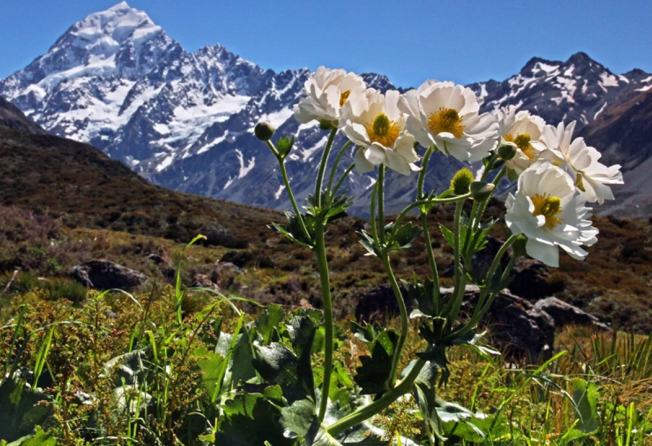Climate change, tourism threaten New Zealand plants
Study says weeds are being spread to higher altitudes

New Zealand’s alpine plants could be at risk of extinction as climate change, skiing and mountain tourism spread weeds to higher altitudes.
An international study just published in Nature Climate Change shows that as temperatures have risen, plants have spread up mountainsides, with weeds being the fastest movers, spreading to higher altitudes twice as fast as native plants.
“We know native plants are moving up mountains as climate warms, but until now no one had looked at how non-native weeds might respond,’‘ said study co-author Professor Philip Hulme of Lincoln University’s Bio-Protection Research Centre.
The researchers analysed more than 130,000 records of 1334 plant species, collected over 20 years in a single region of the European Alps, to discover that weeds quickly outpaced other plants.
It appeared that roads were one of the culprits, with traffic helping to transport their seeds further.
Hulme said the findings should raise concerns for New Zealand’s unique alpine environments.
“I suspect the situation is possibly more dire in New Zealand given that our lowland regions are far more invaded by non-native weeds than similar regions in Europe and our [mountain ecosystems] are coming under increasing pressure from tourism, skiing developments and other infrastructure such as roads,” he said.
“The challenge for New Zealand is that we are no longer collecting the systematic, long-term data on how our flora is changing in these environments - such data are essential if we want to keep our glorious mountain landscapes free of weeds such as gorse, broom and wilding pines.”
The authors of the study point out that such rapid spread into vulnerable habitats is a further threat to species already stressed by higher temperatures.
“We must take action soon otherwise our native alpine plant communities are likely to suffer dramatic changes with ongoing warming and increasing human activity in mountain regions.”